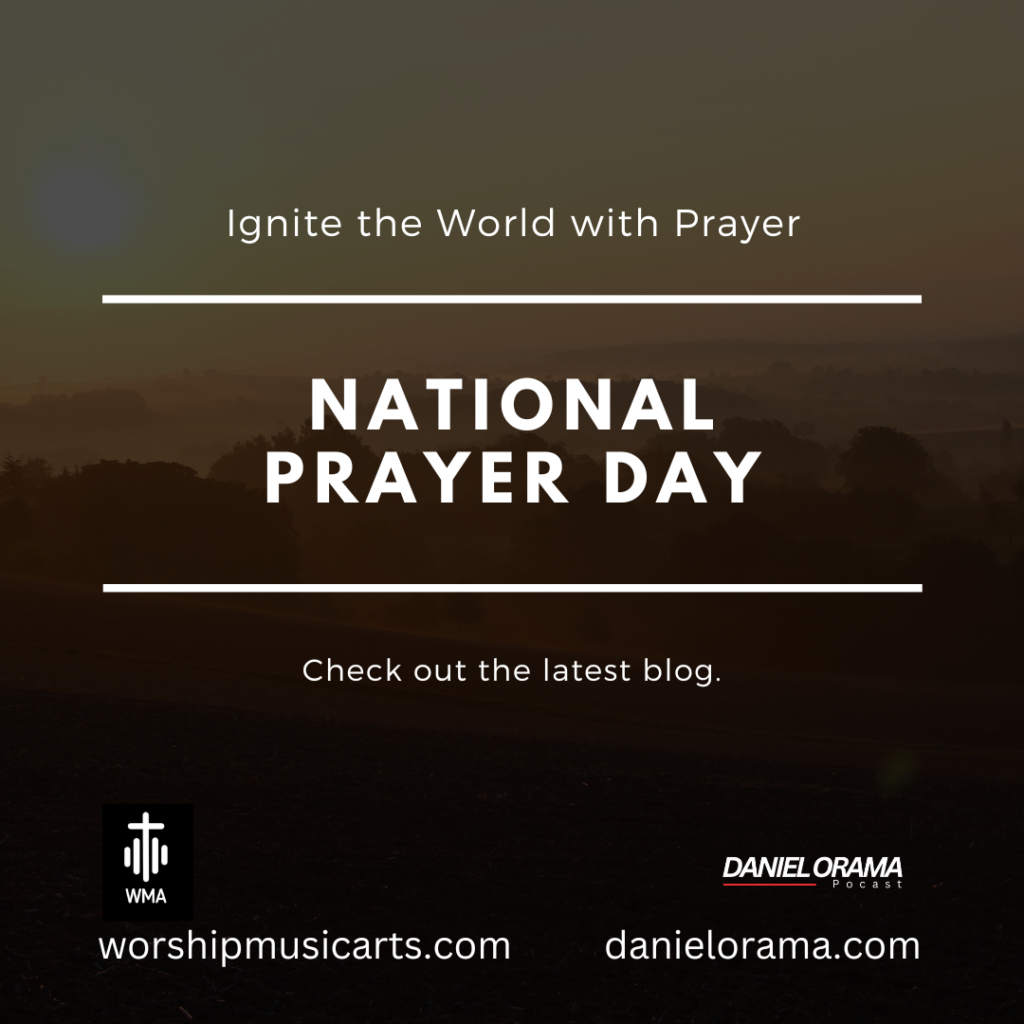Ignite the World with Prayer
Although today, October 1, 2024, is not the National Day of Prayer, every day is a day of prayer. Prayer is the ignitor for Jesus to intervene in our lives, “He always lives to make intercession. Our Priest—Jesus, who is God himself—intercedes for us.”[1] Jesus intercedes for us through the Holy Spirit, where we draw our prayers. According to author Robert Letham, the Holy Spirit is actively involved in our prayers, “It is the Holy Spirit who creates a desire to pray and worship God. It is he who brings us to faith and sustains us in a life of faithful obedience.”[2] The Holy Spirit enables us to pray, while Jesus the Son is the only way to access the Father, “I am the way, the truth, and the life. No one comes to the Father except through me” (John 14:6, NKJV). Ask the Father for a heart of prayer if anyone is lacking in a prayer life.
The Call to Worship
The call to worship quiets one’s heart to prayer, but more importantly, Christ comes alongside us in prayer. Cosper states about Jesus, “The omniscient One who made the universe looks upon you with empathy and love and prays to the Father on your behalf.”[3] The question is whether Christians honestly believe that in their hearts, and if not, then devote time to praying that the Holy Spirit reveals this to the one who seeks it. Block also emphasizes the role of the Holy Spirit in praying, “Let us pray that through his Word and by his Holy Spirit.”[4] Prayer is an act of worship that develops a heart of praise, love, and adoration for God.
Prayer and Praise, Inseparable
Prayer is not separate from praising and petitioning God, as mentioned in Peterson’s “Engaging with God,” “Their eating together in households, however, involved ‘praising God’ (2:47) and must also have involved prayer in the strict sense of petition.”[5] The same applies to the church that prays when the church assembles in prayer, a deeper relationship with God and one another develops.
Pray in the Authority and Name of Jesus Christ
Another point is that several times, including church leadership, a prayer ends without the authority of the name of Jesus. One would have to question whether a prayer without the name of Jesus falls short before the almighty God, which he made clear, “If you ask anything in My name, I will do it” (John 14:14, NKJV). Praying without the authority of Jesus’ name may lead others in the church to follow the same, and before you know it, the name of Jesus is gradually removed. Praying in the name of Jesus is the authority and voice the world needs to hear; otherwise, individuals risk losing what Tozer states, “When His nature and ours begin to harmonize under the influence of the Holy Spirit, the power of His name begins to be felt.”[6] If no one is saying His name, who are we praying to, and how will we begin to experience the power of His name?
You Are Overacting and Legalistic
You are overreacting and legalistic! Really? Why would it be such a challenge to say the name? A telling example is a movie called “Time Changer.” The movie is about a doctoral candidate who wrote a dissertation about discipline on good morals, which, on the surface, sounds logical. The problem with moral discipline is that the name of Jesus is not mentioned in the correction; therefore, God is removed from the throne and replaced with man’s good intentions. Remove the name of Jesus, and we are left to our demise as the world quickly displays its failure to live a good and moral life.
A Burning for Holiness
A believer’s prayer life must include a burning for holiness and servanthood to the work of the Lord. Our prayers should reflect that of praying that the revelation and redemption of Christ is revealed to non-believers. Harold M. Best says, “The first is the unavoidable follow-through to praying for lost people and namely praying for continued growth in personal holiness.”[7] There is something to be said when a congregation comes together to pray for their communities and sees the Holy Spirit’s work, beginning conviction and leading them to salvation in Christ. Lastly, how will leadership expect others to follow if they do not lead the charge?
[1] Mike Cosper, Rhythms of Grace, 67.
[2] Robert Letham, The Holy Trinity: In Scripture, History, Theology, and Worship (Phillipsburg, NJ: P & R Publishing, 2019), 387, ProQuest Ebook Central.
[3] Mike Cosper, Rhythms of Grace, 68.
[4] Daniel I. Block, For the Glory of God, 80.
[5] David G. Peterson, Engaging with God, 157.
[6] A. W. Tozer, The Purpose of Man, 70.
[7] Harold M. Best, Unceasing Worship, 111.

